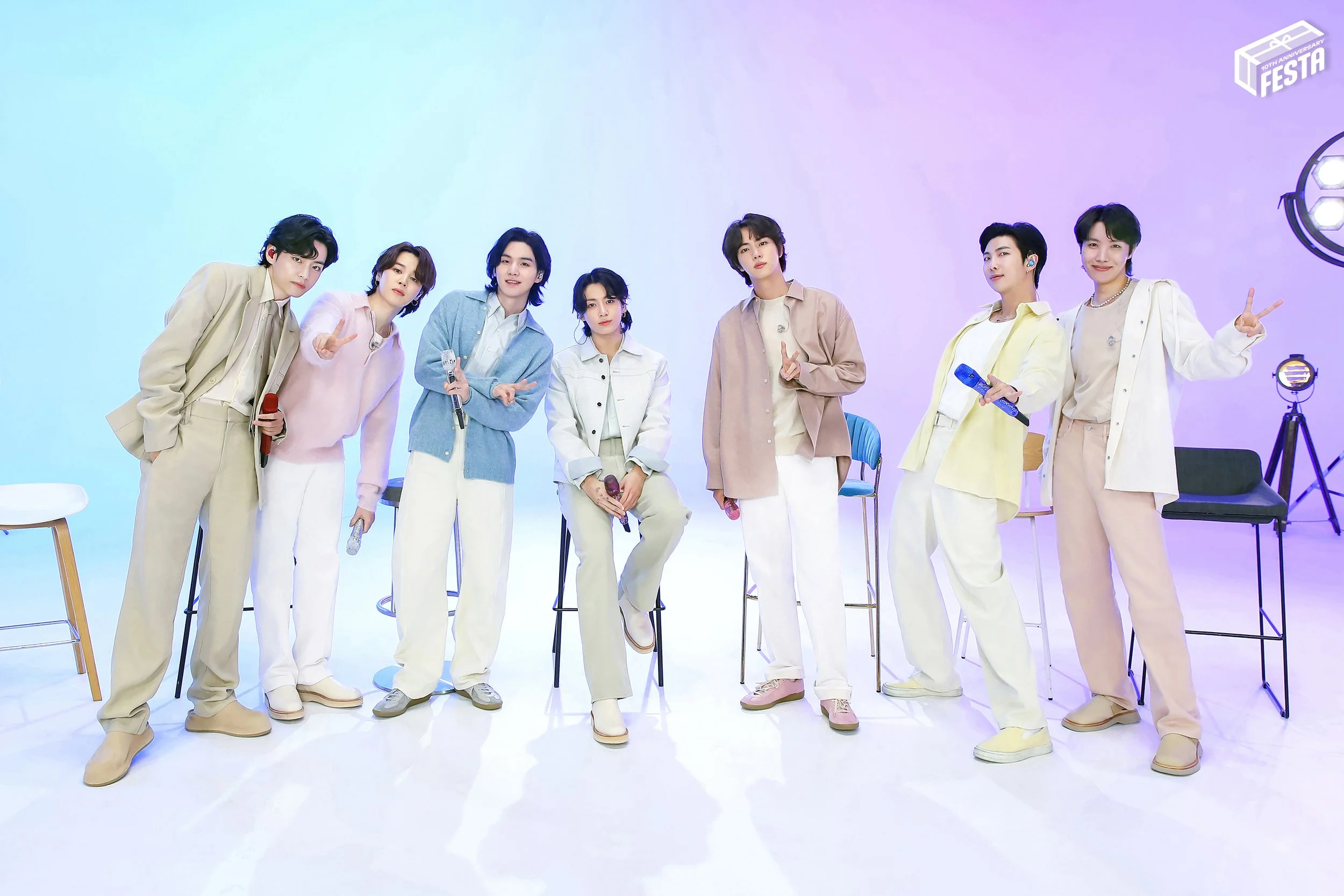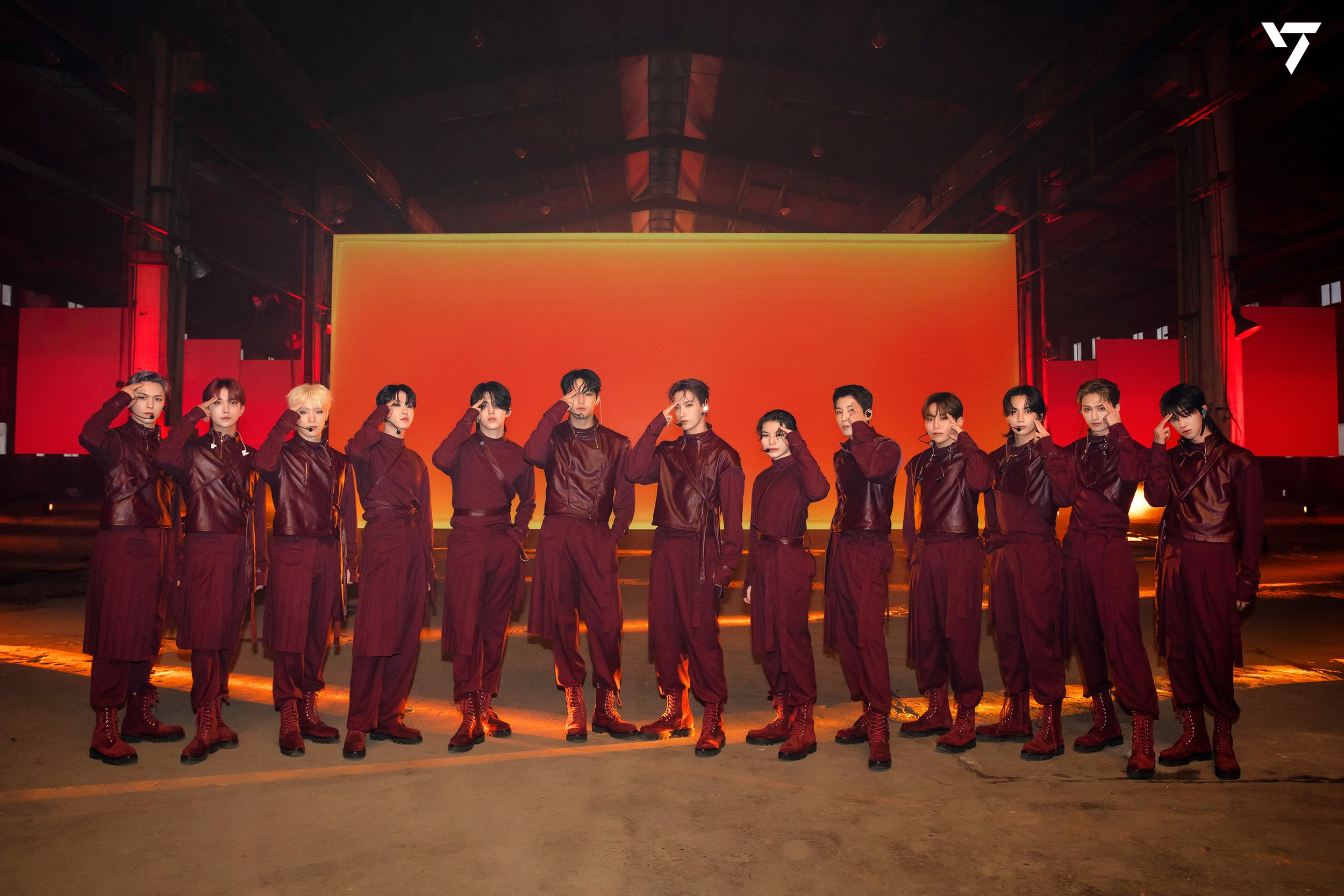The self-producing K-pop phenomenon
The popularity of self-producing K-pop groups has truly skyrocketed over the past few years. But what actually makes for a self-producing group?
BTS secured popularity with their self-produced songs. Image: BTS Official Twitter
The term ‘self-producing idol’ has begun to be used frequently in conversations surrounding a group’s involvement in the creation of their music. The K-pop industry is known for having huge teams rallying around just one group with producers, choreographers, lyricists, and designers all taking part in the process of perfecting their group’s releases.
Whilst this attention to detail and engagement of industry professionals was once praised, there has now been an increased interest from fans in the concept of K-pop groups and artists self-producing. But where did this trend come from and why is it so popular now?
While some idols in the first and second generation of K-pop had participated in writing lyrics and composing music for their groups, the title of ‘self-producing idol’ seemed to come into play in the third generation with the debut of SEVENTEEN. The 13 member boy group from PLEDIS Entertainment started out with very little.
Compared to groups under the big three, SM, YG, and JYP, that could afford composers and choreographers to create their music and dances, SEVENTEEN had to be resourceful and produce their own debut. Since then, vocal leader, WOOZI, has been producing and composing the group’s tracks for their entire career and performance leader, Hoshi, has had a huge hand in choreography alongside the other performance team members.
SEVENTEEN are arguably a truly self-made group with the title self-producing idols matching them perfectly thanks to every members’ involvement in at least one aspect of creating a comeback.
SEVENTEEN’s self-producing talent has propelled them to success. Image: PLEDIS Entertainment.
We can’t mention third generation self-producing idols without talking about BTS. Member Suga has been credited on multiple group and solo projects as a producer and lyricist. And all members of BTS have taken part in writing lyrics and have been involved in the song creation process at some point making them deeply involved in the music that they release. Similarly to SEVENTEEN, BTS came from Big Hit Entertainment, which was originally a small and relatively unknown company. Both groups seemed to use the appeal of being self-producing to attract more fans.
It’s more common in the fourth generation for groups to have a hand in producing their own music, and it’s not specific to just boy groups. Jeon Soyeon from (G)I-DLE has been involved in composing many of her group’s tracks and has also participated in the creation of a few collaborations, placing her at the forefront of K-pop’s self-producers. Stray Kids’ 3RACHA are also hugely famous for their production techniques and genre bending music. They’re leading the way for all boy groups of the fourth generation that want to get involved in composition.
However, not every group in the fourth generation can be called self-producers. Groups in which a few members participate in writing lyrics probably couldn’t be called ‘self-producing’. Whilst lyric writing is a great skill to have, self-production must include significant involvement in composing and producing the group’s music.
Aside from the debate surrounding who is or isn't a self-producing group, other debates including whether it matters or not have arisen. Many fans have argued that these self-producing groups work so well because they want to produce their own music rather than be forced to for popularity. Others have suggested that they aren’t bothered by the self-producing title; good music is good music whether it was written by the group themselves or not.
Stray Kids’ production team 3RACHA earn the group the title of ‘self-produced’. Image: Stray Kids Official Twitter.
The obsession with self-producing K-pop groups seems to come from a place of pride. When deep in a Twitter debate about which group is leading the fourth generation or which group is most talented, being able to say that your favourite group not only is great at singing and dancing but also producing and composing adds an extra level of talent that impresses K-pop fans.
K-pop companies are now actively seeking out trainees that have an interest in producing and composing. As this is an attractive quality to have for fans, groups that choose to create their own albums are seeing a rise in popularity. Arguably, songs that are written by the groups themselves feel more personal and are easier to connect to.
Knowing that songs written by the idol themselves that discuss the challenges they’ve had to overcome allows fans to feel closer to the idol and relate to them more. For example, “Hug” performed by SEVENTEEN and written by WOOZI acts as a warm comfort blanket to fans that are going through hard times. Or Agust D’s “The Last” in which he reveals his struggles with mental health earlier on in his career. If a fan has been through similar struggles, it can be uplifting to see their idol speak freely about it in their music.
Fan songs become even more special when they are written by the idol themselves. The music and lyrics feel more authentic and seem like a genuine ‘thank you’ to a group’s fans. Tracks like “THANKS” by SEVENTEEN that are dedicated to giving something back to fans seem more legitimate than those that are not written by the members themselves. This honesty may be what drives some fans to liking certain groups over others and makes it clear why some companies are moving towards creating self-producing groups.
It’s clear that this debate surrounding self-production will continue to cause disputes between fans. Whilst self-producing idols will become more prominent as we transition into the fifth generation, the term is more likely to be misused.
More K-pop groups that aid in composing or producing singular tracks and writing lyrics for a few songs will be named self-producing. In reality, many of these groups will not be as involved in production as SEVENTEEN or (G)I-DLE are. It will be nice to see more K-pop groups having a hands-on approach to creating music and producing comebacks. However, it feels like this will only work if the members themselves are interested in doing this rather than being forced to.
The K-pop industry has often portrayed itself as a bit of fun and it should remain as such. If a group’s music is good, should it matter that it was written by themselves or not?
Edited by Abby White.



